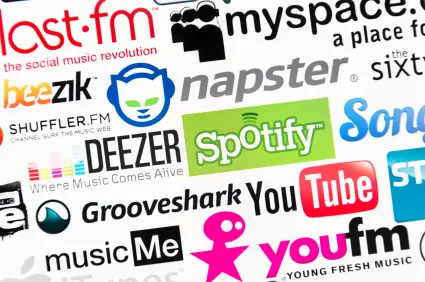
All the Big Streaming Holdouts are Caving to the Inevitable
Once upon a time, the Beatles refused to allow their music to be sold on iTunes. When they finally relented, they wouldn’t play ball with streaming services. It took a few more years for that to get sorted.
But even as the Beatles’ holdout on the new technology ended, other artists remained outliers for digital files and/or streaming. Garth Brooks. Bob Seger. Tool. Prince. Led Zeppelin. Pink Floyd. Neil Young. Def Leppard. AC/DC. Taylor Swift. Their position was unwavering: “If you want these tunes, buy the CDs or vinyl.” It seems crazy no
And to be fair, they had a point. It used to be that a successful artist could rely on regular royalty payments from their back catalogue year after year after year. These successful albums worked like annuities or a retirement plan. Every few months, a nice, fat cheque would arrive in the mail. The Beastie Boys used to sell a couple million copies of
The Beastie Boys used to sell a couple million copies of Licensed to Ill every single year. At one point, every single Doors album sold in platinum numbers every 12 months. And the number of Beatles records sold over the decades is staggering.
But times have changed. There’s a reason The Eagles, Fleetwood Mac, the Who, Bob Dylan, the Rolling Stones, Elton John and so many other classic or “legacy” acts are still on the road or are back to touring even as members reach into their mid-70s. Those once-mighty sales royalties, money that allowed for a fantastic rock star lifestyle, are getting smaller and smaller. A different source of revenue is necessary. The most lucrative is playing live.
Even contemporary artists like Taylor Swift and Adele know that after an initial sales pop upon the release of a new album, they need iTunes and, more importantly, streaming if they’re going to satisfy the needs/wishes/demands of their fanbase.
Time to accept the music industry realities of the 21st century. The number of iTunes/streaming holdouts are shrinking and will continue to shrink. Those who still resist are looking more like Luddites and risk being rendered irrelevant to millions of fans. Fast Company takes a look at the situation.
The slow thaw in artists’ discontent is easy to understand once you see the numbers. Last year, streaming made up more than 50% of the music industry’s revenue for the first time. As services like Spotify and Apple Music have reeled in more customers, revenue from subscriptions has exploded, more than doubling in 2016 and driving an 11% increase in overall music industry revenue. That’s right: After a more than decade-long, dramatic free fall, the music industry is finally growing again. And it’s mostly thanks to streaming.
In 2017, it feels like we’re officially moving past the debate about whether streaming is the right way forward for music, and more toward an acceptance that it’s the future, albeit one with some critical questions still looming. And for artists—especially legacy musicians with big back catalogs—any remaining discomfort over the economics seems to give way to a simple fact: If your music isn’t on streaming, you’re missing out on millions of listeners as a new source of revenue. As more listeners shift to streaming, the holdouts become less relevant.
Just as it seems crazy that any artist would push back against allowing their music on iTunes–Tool? Def Leppard? What are you thinking?–there will come a time in just a few years that the concept of not making your music streamable will be seen as career suicide.
Times, they are a-changin’. Again.




Pingback: All the Big Streaming Holdouts are Caving to the Inevitable – PorkPieTV.com